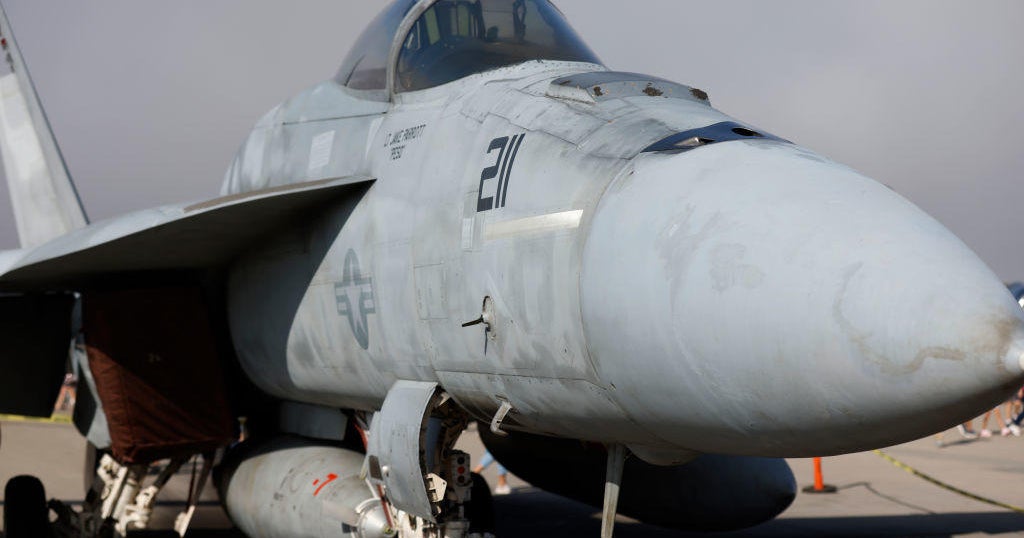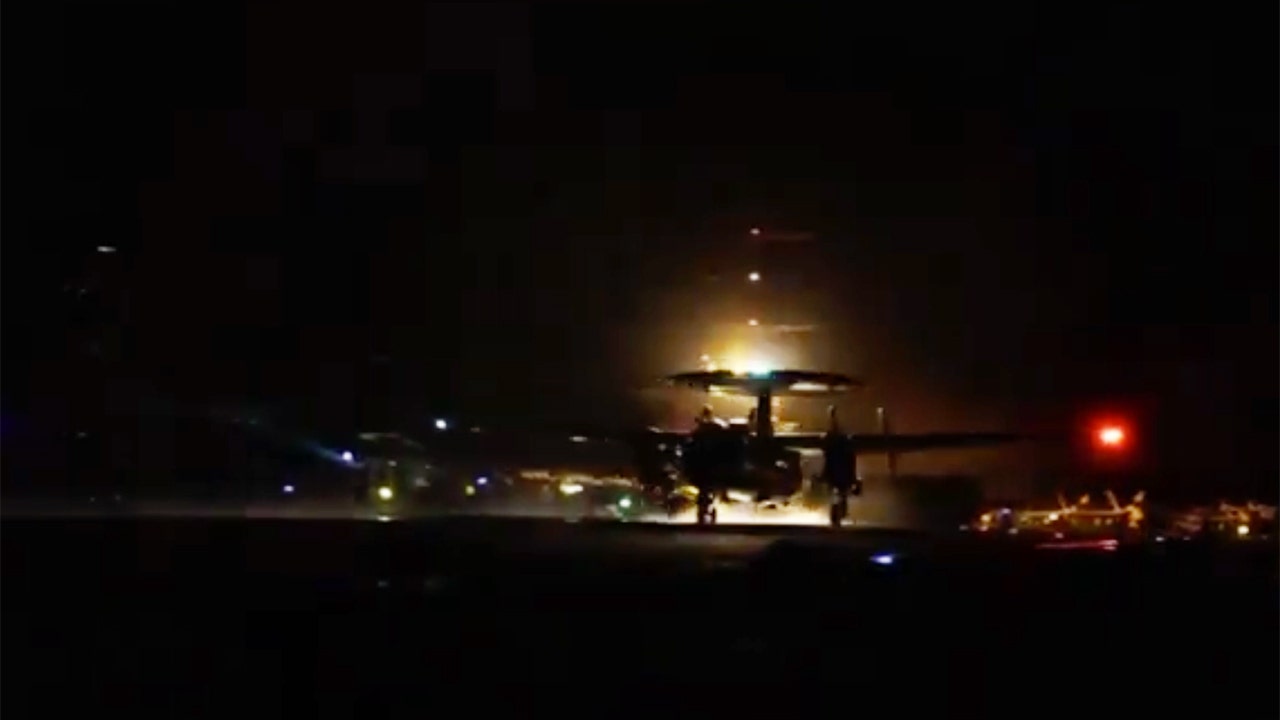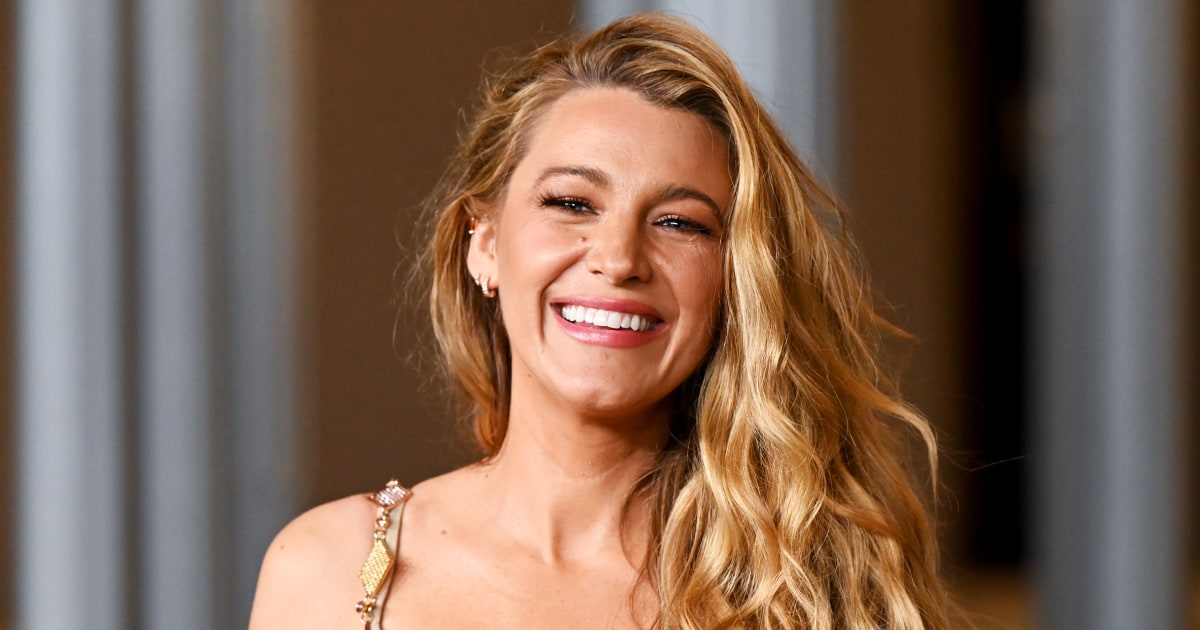World
ANALYSIS | Elephant in the room at NATO summit: The return of Trump | CBC News
A day before the start of the NATO summit, a top U.S. congressman brought up Canada as a source of frustration without any prompting.
When asked about American allies who are pulling their weight in defence spending, the Republican speaker of the House of Representatives pivoted to the exception on his mind:
“By contrast, shamefully, [there’s] Canada,” Mike Johnson said during a think-tank event in Washington.
“Talk about riding on America’s coattails. They have the safety and security of being on our border and not having to worry about that. I think that’s shameful.”
It’s been said Canada is in the hot seat at the NATO summit, which is unfolding amid a spike in global tension that has countries ramping up defence spending. Nearly one-quarter of U.S. senators, from both parties, have written an unusually caustic letter to Prime Minister Justin Trudeau demanding a plan to hit the alliance’s minimum spending goal.
But it could get a lot hotter next year.
Recent elections in the U.K. and Europe as well as the upcoming U.S. election are one issue expected to dominate the agenda at the 75th NATO summit. The other will be defence spending — including Canada failing to meet a two per cent spending target.
Even as Trudeau toured Capitol Hill on Tuesday, there were reminders that, within months, the leader of Johnson’s party, Donald Trump, could be president again.
Trump is the proverbial elephant in the room at this year’s summit.
Had Canada’s prime minister wandered down the corridor, to the left, from his meeting with Senate leaders, he would have witnessed a party in unseemly disarray.
A dense swarm of reporters had gathered outside a room where Democratic lawmakers were meeting to discuss their widespread fear that President Joe Biden is destined for electoral doom.
So what would a Trump comeback mean if he does, indeed, win this fall? Trump has already threatened to stop defending NATO countries who don’t meet their spending commitment.
Some of his allies say to count on Trump being aggressive with the stick against friendly countries, more so than Biden’s carrot approach.
Trump would ‘ratchet up’ the pressure
“The pressure will ratchet up,” North Dakota Republican Sen. Kevin Cramer told CBC News.
“Because Donald Trump’s already proven he’ll do that. And he’s done it to great effect with other NATO nations.”
Cramer made clear he hopes it never comes to this. While Canada deserves the criticism it’s getting, he said, he predicts that there’s enough national pride to want to be a more useful international ally, and that Canadians themselves will demand it.

He acknowledged Canada has, in fact, increased spending, and joked that, even if he’d never vote for Trudeau, the prime minister was charming in their meeting this week.
Biden’s allies argue their good-cop approach has borne fruit: The vast majority of NATO members have, like Canada, increased spending since Trump left office.
But Canada, unlike most, has no plan to hit two per cent of GDP that NATO members have agreed to spend on defence and security.
What could pressure Ottawa to meet that target? In other words, what’s the stick? Cramer said he can’t think of one, off the top of his head.
‘There have to be consequences’ for Canada: Trump ally
One Trump ally has ideas. He shared them with CBC News.
With the U.S. national debt exploding, security threats proliferating, and a sluggish American defence industry struggling to produce weapons and ships on time, Elbridge Colby says an increasingly overstretched U.S. can’t keep giving allies a pass.
Colby was a senior defence strategist in the last Trump administration and widely expected to land an even higher-level national-security role in any future one.
He said Biden has erred by not threatening allies with repercussions.
“There have to be consequences,” Colby said.
“If you care about NATO and collective defence, more than anyone else, you should be sure that there have to be penalties, because in a sense, we’ve gotten to a point where clearly someone like Prime Minister Trudeau openly flouts and doesn’t listen to sort of sweet nothings and the blandishments [of U.S. officials].”
In his view, the potential penalties could range from sidelining Canada from international meetings — even the G7 — or economic actions, such as the 10 per cent global tariff Trump is threatening.
“Those are all fair game,” Colby said. “Because obviously Canada is not going to be moved by things strictly in the military domain.”
Elections as a way to change military spending
Colby stresses that he is not speaking for Trump or his campaign. However, he said, he would advise Trump, in whatever capacity he might be serving, to use whatever tool he has in international relations to create that pressure.
“There has to be some accountability,” he said, for allies that moralize about international affairs without investing in it, while rewarding countries that do meet their commitments, like South Korea and Poland.
One difference between Canada and those two countries is their proximity to aggressive U.S. rivals, Russia and China.
The Republican senator from North Dakota acknowledged that Canada has, at the moment, little reason to fear for its own security.
“The United States is always going to look out for Canada if for no other reason than that the Arctic is a very important domain and route,” said Cramer, who co-leads a Canada-U.S. congressional group.
“They’re just too important to abandon and I don’t want to get into the threat business. I think it’s not appropriate and not fruitful.”
He quipped that maybe elections in Canada might change the country’s military spending trajectory.
If not, then, maybe elections in the U.S.










